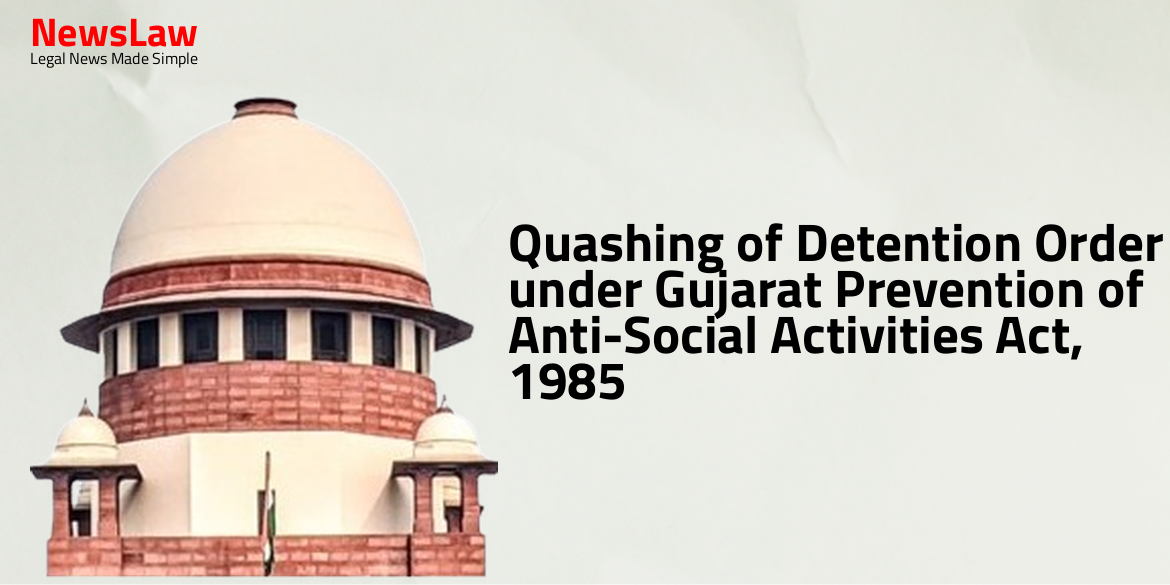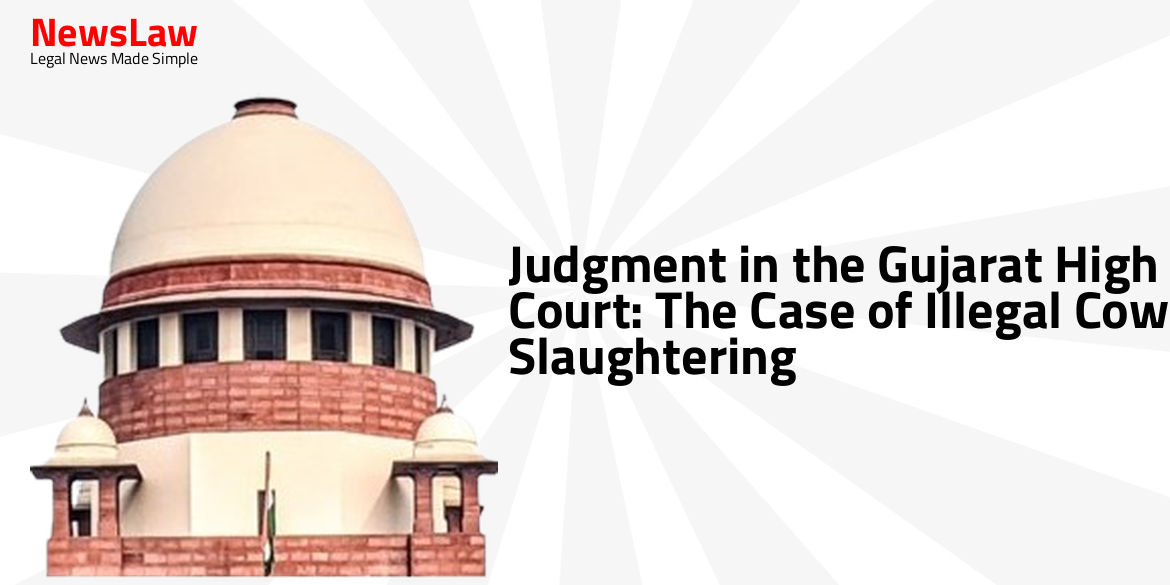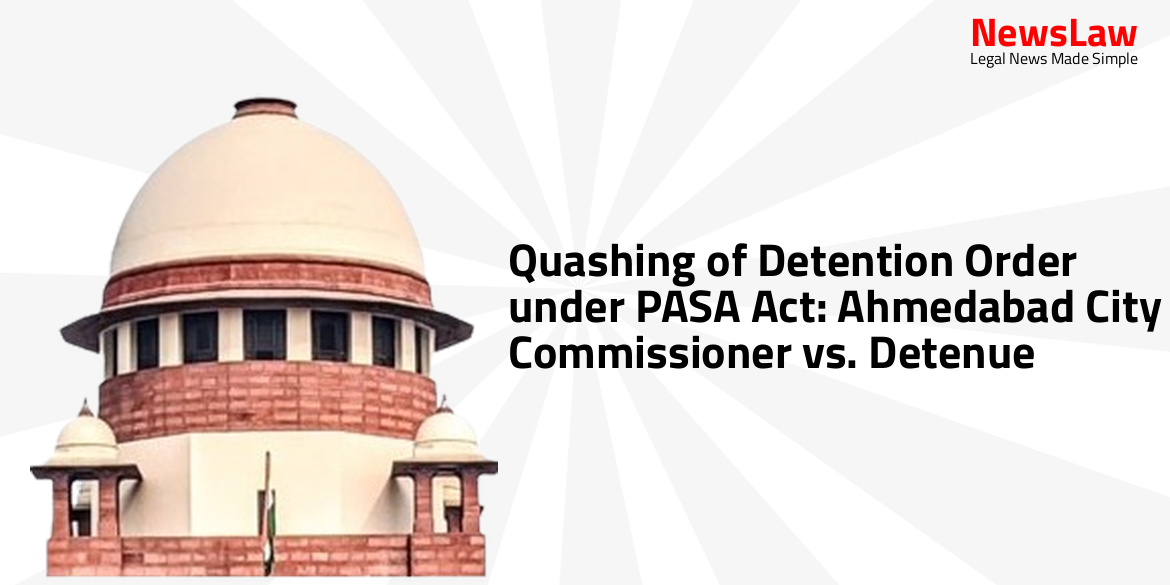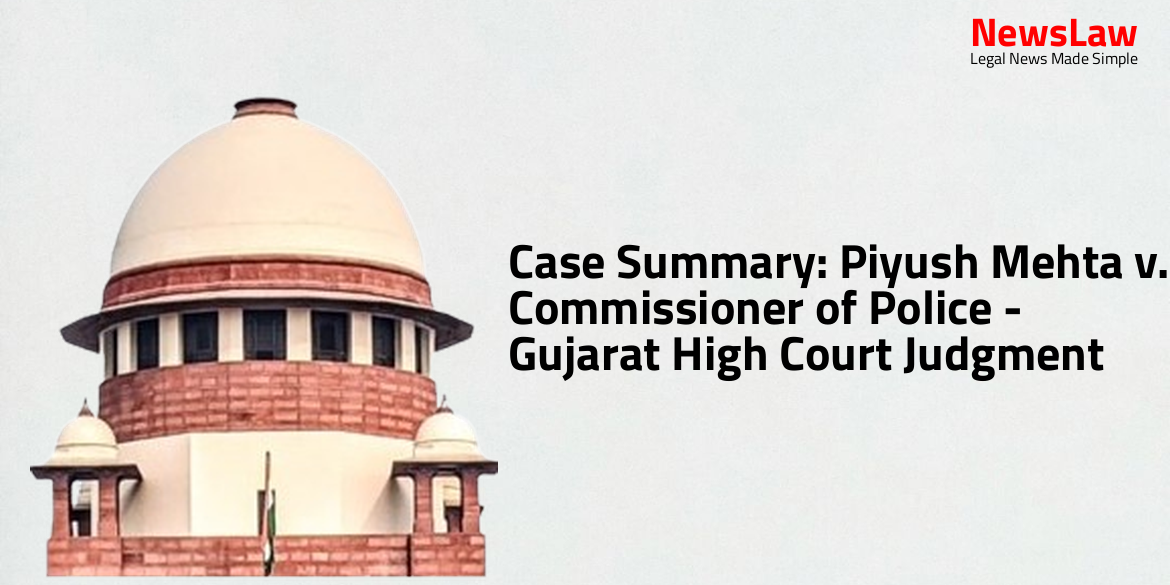In a significant legal development, the Gujarat High Court has issued a ruling quashing the detention order under the Gujarat Prevention of Anti-Social Activities Act, 1985. The case involved a challenge against the detention order dated 25.01.2024 passed by the detaining authority. An in-depth analysis of the distinction between public order and law and order was crucial in this judgment, emphasizing the exceptional and draconian nature of preventive detention powers. The court’s decision reflects a commitment to upholding the constitutional provisions safeguarding personal liberties. #LegalCase #HighCourt #PreventiveDetention #GujaratHighCourt
Facts
- The present petition is challenging the order of detention dated 25.01.2024 passed by the detaining authority under the Gujarat Prevention of Anti-Social Activities Act, 1985.
- The order was passed against the petitioner as defined in the Act.
- The petition is directed against the exercise of powers under Section 3(1) of the Act.
- The detention of the petitioner is under scrutiny in this case.
Arguments
- The impugned order of detention is challenged on the grounds that it was solely based on the registration of four FIRs related to specific sections of the Prohibition Act.
- The advocate for the petitioner argues that these alleged activities do not constitute a breach of public order but rather fall under the category of breach of law and order.
- It is contended that the petitioner’s actions, as related to the criminal cases, did not disturb the social fabric of society or pose a threat to the normal life of the people at large.
- The advocate asserts that the detaining authority did not establish a nexus between the petitioner’s activities and the maintenance of public order, suggesting that the detention order lacks justification.
- State has supported the detention order passed by the detaining authority.
- Sufficient materials and evidences were found during the course of investigation.
- Materials were supplied to the petitioner – detenue.
- Indicates petitioner is in the habit of indulging in activities defined under Section 2(b) of the Act.
- Detaining authority passed the order rightly considering the facts of the case.
Analysis
- The Court has quashed over five detention orders under the Telangana Act of 1986 in the last five years due to incorrect application of the standard for maintenance of public order and reliance on stale materials.
- The State has alternative remedies such as seeking cancellation of bail or moving an appeal to the Higher Court if the detenu is a significant menace to society.
- The subjective satisfaction of the detaining authority was found to be not in accordance with the law as the offences alleged in the FIRs did not have any bearing on public order as required under the Act.
- There is a lack of material to prove that the detenue poses a threat to public order or has acted in a manner dangerous to public order.
- The judgment refers to a recent Supreme Court decision criticizing the routine and unjustified use of preventive detention laws in Telangana.
- The distinction between ‘public order’ and ‘law and order’ has been clearly settled by a Constitution Bench in the case of Dr. Ram Manohar Lohia vs. State of Bihar, reported in AIR 1966 SC 740.
- Public order, if disturbed, must lead to public disorder.
- Detention under Rule 30 of the Defence of India Rules permits apprehension and detention of a person likely to act in a manner prejudicial to the maintenance of public order.
- Disorder is prevented by the maintenance of law and order, but disorder is a broad spectrum that includes various levels of disturbances.
- The personal liberty of an accused cannot be sacrificed on the altar of preventive detention without adequate justification.
- The powers of preventive detention are exceptional and draconian in nature.
- The case highlights the need for fair evaluation of detention orders and challenges pending before advisory boards and courts.
- A mere apprehension of a breach of law and order is not sufficient to meet the standard of adversely affecting the ‘maintenance of public order’.
- Every act of assault or injury to specific persons does not lead to public disorder; it must affect the community at large.
- The Constitutional provisions on preventive detention aim to prevent abuse of exceptional powers by the state.
- Every disorder does not necessarily disturb public order unless it affects the community at large.
- Actions under the Defence of India Act must specifically address disturbances that may subvert public order.
- A distinction must be made between serious and aggravated forms of disorder affecting the community and minor breaches of peace with local significance.
- Preventive Detention Act can be invoked for actions that directly impact public interest or the community.
- Mere disturbance of law and order is not enough for action under the Preventive Detention Act.
- Registration of FIRs alone does not establish a breach of public order.
- Without relevant and cogent material, the power under Section 3(1) of the Act cannot be invoked.
Decision
- The petitioner, who is the detenu, is ordered to be released immediately if not needed in any other case.
- The rule has been made absolute to this extent.
- The impugned order of detention dated 25.01.2024 issued by the detaining authority is quashed and set aside.
Case Title: ANJUBEN D/O TITUBHAI SANGODIYA THROUGH HIS BROTHER SUKARMBHAI TITUBHAI SANGODIYA Vs. COMMISSIONER OF POLICE
Case Number: R/SCA/2355/2024



